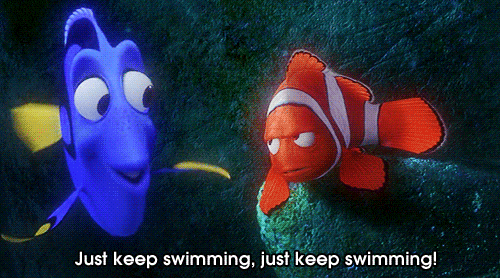The last few weeks have been an emotional and physical rollercoaster! In addition to dealing with the stress of soon having to attend court to testify against an ex-colleague regarding things I reported at the start of my career, I’ve also managed to dislocate my kneecap while putting together a display promoting Shakespeare on our brand new, you beaut shelves, so I’m off work for a bit. Needless to say, I’m not living my best teacher-librarian life right now.

In a world where teacher librarian roles are misunderstood and at risk of being diminished or dismissed, so much of the TL degree emphasised the importance of being accessible to our colleagues, open to collaboration, and presenting ourselves as reliable, trusted experts who can support their work and make their lives easier. Several researchers highlight the importance of trust, reliability and strong relationships as crucial factors in leadership (Branch-Mueller & Rodger, 2022; Ezard, 2015), which is especially important considering that most TL positions are leading from the middle without formal authority (Cox & Korodaj, 2019). Indeed, the International Literacy Association (2022) argued that there are 3 key factors which boost perceptions of teacher-librarians as essential within a school:
- Librarians as collaborators.
- Librarians as advocates of literacy equity.
- Librarians as providers of access.
To advocate effectively for the importance of our role, we therefore need to become important in the eyes of those around us. We need to be visible and position ourselves as essential for both staff and students, to become reliable sources for support and access to resources, and to build strong relationships with all members of our community based on mutual respect, trust, and recognition of what we do.
But what happens when things go wrong? How can we build this trust and these relationships when we can’t be reliable? What happens when staff are willing to work with us, but factors beyond our control threaten to break that trust?
So much has been written about the need to be reliable, trustworthy, collaborative, and supportive, but I couldn’t find much at all on what we can do when circumstances work against us despite our best efforts! It’s so easy to give in to despair when things constantly seem to go wrong, and so hard to be visible when you literally can’t get in to your workplace!

Over the last fortnight I’ve needed to cancel two senior research lessons and my Wide Reading classes, and since I’m not replaced when I’m absent the library has been shut during the breaks, affecting access to the space, its resources, and the safety it offers so many of our students. All the little ways I support teaching and learning at our school – such as mentoring students, de-escalating heightened kids, making sure students aren’t truanting in the library – as well as the big ones like maintaining the collection and providing valuable learning opportunities have come to a halt as a result of my absence.
Each setback represents a step backwards in the progress I’ve made in centering the library within our school community, with loans and visitor data always reflecting how hard it is to bounce back after extended closures. I’ve witnessed the impact of unreliability with previous librarians as both a student and staff member, and I need to ensure that this doesn’t become my reality.
As such, I’ll need to work twice as hard upon my return to catch up on missed work, repair relationships and rebuild trust in my abilities and reliability. After all, how we bounce back from adversity can be a ‘chopportunity’ to showcase our professionalism and advocate for our continued importance to our school community. It’s also important to model resilience to those around us, and to remember to control what we can and try not to worry about the things we can’t.

I also need to remember I’m lucky that I have built strong relationships with various staff members in my school, and although I might feel I’m letting them down they’re generally very understanding about my situation. I’ve been in frequent communication with many of my regular collaborating teachers during my absence, offering up lesson resources and the library space in an attempt to ensure minimal disruption and continued support of their work. I’m attempting to do as much work from home as I can, which will hopefully make the transition back to work onsite a little less overwhelming.

If anyone reading has further suggestions on how to build reliability and trust as a teacher-librarian in need, I’d love to hear them! In the meantime, I’m going to do my best to be like Dory, and just keep swimming!
